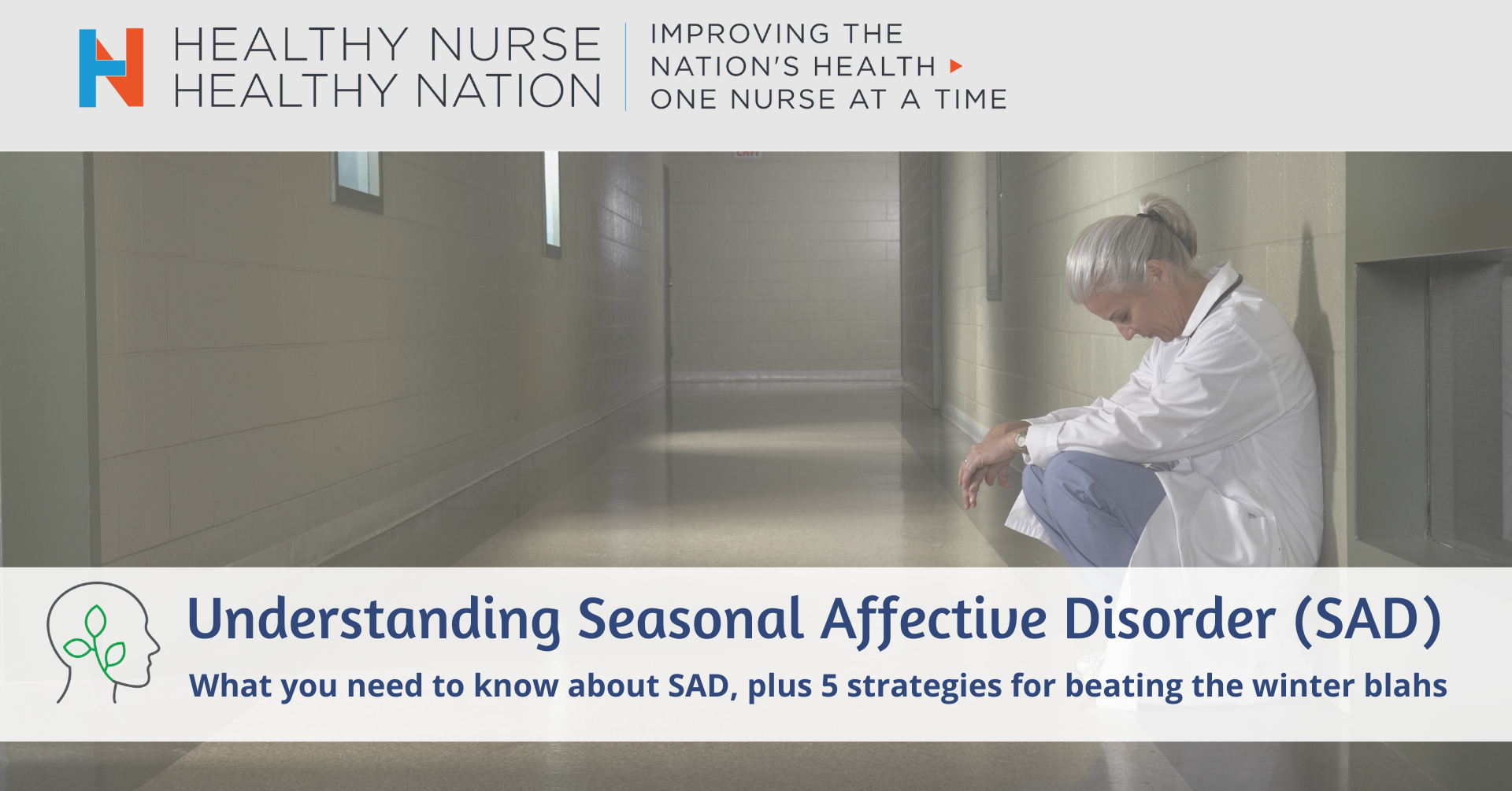Understanding Seasonal Affective Disorder (SAD)
Published
Pitch-black mornings and evenings, shorter days, and colder weather that makes it unpleasant to be outside for long: All these factors can contribute to feeling blue in the winter. And it’s perfectly normal. However, if you feel sluggish or sad for weeks, you might have seasonal affective disorder (SAD). The change in seasons during the winter can trigger this depression. According to the American Academy of Family Physicians:
- Approximately 4 – 6% of American adults experience SAD
- Between 10 – 20% of Americans have “the blues” during this time of year
Researchers speculate that the lack of sunlight in winter can disrupt the circadian rhythm or biological clock. This change can lead to lower levels of melatonin and serotonin, the hormones that regulate mood and sleep and make us feel good.
Signs of SAD:
If you notice that the typical signs of depression affect you primarily during the winter months for at least 2 years in a row, you may have SAD. According to the National Institute of Mental Health (NIMH), symptoms may include:
- Low energy
- Wanting to sleep all the time
- Avoiding social situations (feeling like “hibernating”)
- Overeating, especially craving carbohydrates
If you think you have SAD, reach out to your healthcare provider. If you have thoughts of suicide or self-harm, call or text the the National Suicide Prevention Lifeline at 988. A chat is also available at 988lifeline.org.
When you are in crisis, there is help available. You are not alone. Please reach out.
Strategies for overcoming winter blues
Many people are not officially diagnosed with SAD, but they have a mild case of the “winter blues.” In those cases, try these strategies to feel better during this season:
- Get out in the sun-We know to protect ourselves from the sun due to skin cancer concerns. But spending a small amount of time in the sun (about 30 minutes a day) is good for our well-being. The sun’s rays interact with our skin to create vitamin D. This vitamin helps produce serotonin, which helps people feel calmer and less stressed, while also boosting mood. Taking a vitamin D supplement is also an option but talk to your healthcare provider before purchasing or taking the supplement.
- Experiment with light therapy-To practice light therapy, sit in front of a special light box that emits an ultra-bright light for at least 30 minutes per day. According to Mayo Clinic, light therapy may help boost melatonin and serotonin that our bodies tend to lack in the winter. There are few negative side effects and this therapy is available without a prescription. However, you should consult with your healthcare provider first because there are several health conditions and medications that can react negatively to this therapy. Your provider may suggest a specific model or type. Choose a model that emits as little UV light as possible. Most light boxes can be ordered through a pharmacist or purchased directly online.
- Exercise regularly-Working out is a known mood booster that can help you sleep better, ward off weight gain, and increase energy. Keeping up or beginning a fitness routine during the winter may help you feel happier.
- Schedule a warm-weather vacation-Plan to go someplace sunny and warm during the winter. You’ll get the benefits of the sunshine. Plus, the vacation will give you something to look forward to and remember fondly afterward, so the feel-good effects will last for longer than the time you’re away.
- Make time for friends-The urge to stay in and lay low after the busy holiday season is normal and expected. But try to prioritize getting together with friends and family. The winter can be isolating, so it’s important to stay connected — especially if you’re feeling down.
Additional Resources:
ANA's Nurse Suicide Prevention/Resilience webpages
The Well-Being Initiative-Free tools and apps to support the mental health and resilience of all nurses.
Updated 2/17/22

Not a member of Healthy Nurse, Healthy Nation (HNHN) yet? Join us today!
Blog Mental Health
01/14/2019 3:22pm CST



Post a Comment or Question